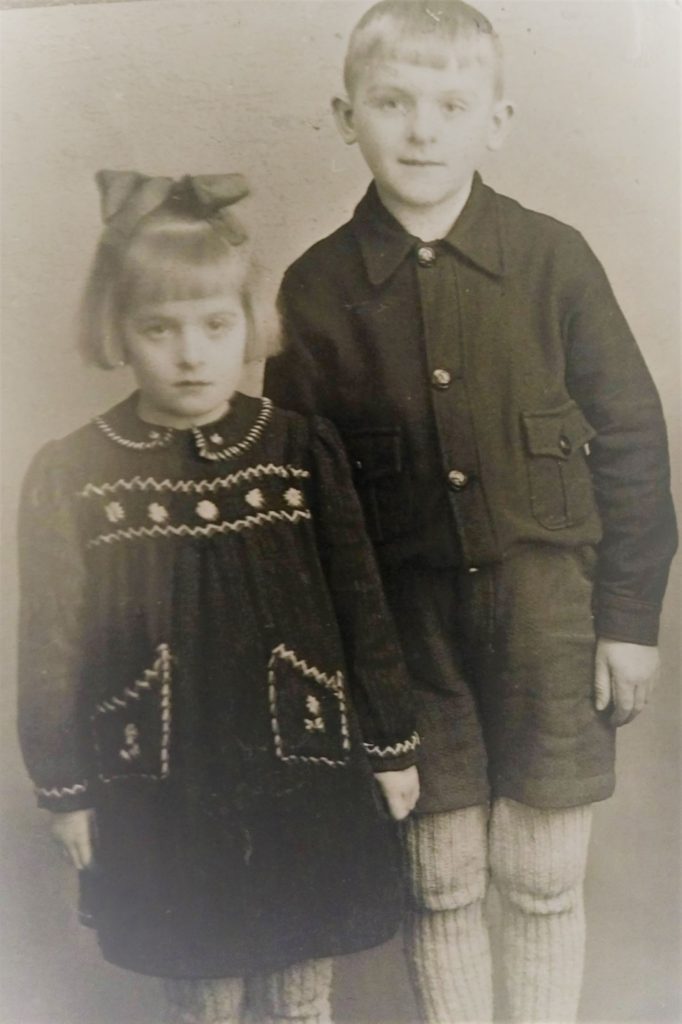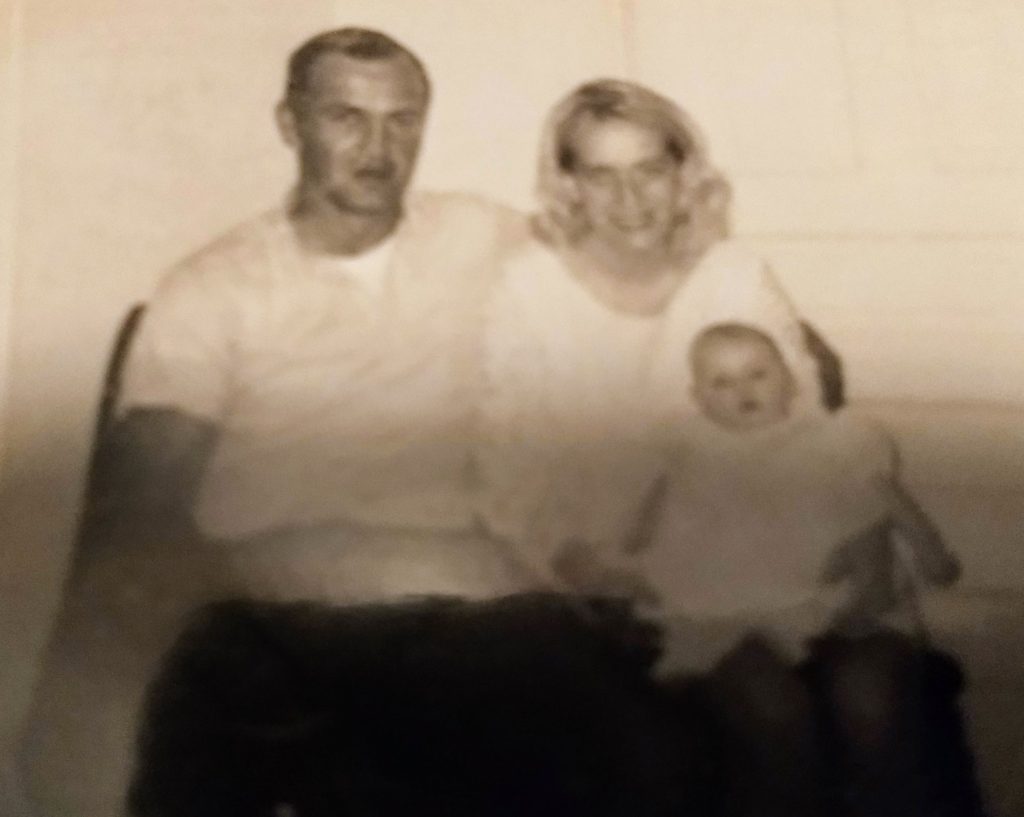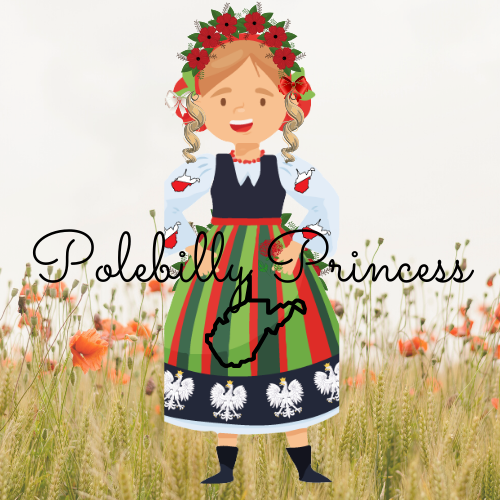An Emigration Story
Babcia has been in the United States since October 12, 1957. She has seen, felt, thought, and lived SO much since that time… all through the eyes of someone who was not born in the United States. When I truly think of all she has seen and how it must have seemed to her, I am filled with amazement. She has handled so much with grace and with intense bravery.
My mother’s (Babcia) story begins before she was ever born, in Poland. On September 1st, 1939 the Nazis invaded Poland. Babcia wouldn’t be born for three more years but the course of her life had already been changed forever. Several of her brothers and sisters had already been born when this occurred. They’d lived in a cozy home with a garden and land, and had plans to build a new home. Soon however, the Nazis began to come and visit. Terrorizing the people in their homes, they offered the choice of becoming German or being taken away. Becoming German meant losing your sons to the army of the Third Reich. Babcia’s father, my Dziadek, refused. His answer to the Nazis that came, “I was born Polish and I will die Polish”. The only reason the entire family wasn’t killed on the spot was due to the fact that Dziadek had a policeman friend who spoke up for them; the Nazis constantly put guns to their heads and threatened their lives, even the children.
Babcia was born in May of 1942, in Dziemiany Kascierayna, Poland. Near the end of the war in 1944, their time had run out and soldiers came to take the family forcibly from their home. Babcia’s older siblings have memories of being in a constant state of alert, sleeping with extra clothing on and with food tucked into the layers in the event they would have to flee in the middle of the night. When they were removed from the family home, they took only blankets, some food, and a plaster cast statue of the Virgin Mary. They were taken to a fenced in area of the local train station to board box cars with no idea where they were going; they believed they were all to die. My Dziadek had sisters who met them at the station and were on the other side of that fence. They begged the family to give them the youngest of the children so they could save their lives. My mother (Babcia), one older brother, and one other sister were to be left behind. In the end though, only Babcia and one brother were passed over the fence to the sisters. It would be about 13 years before they would see their family again.
Babcia describes living with the two sisters, who she calls “spinsters”; they were both strict, Catholic schoolteachers who had never married. It was a tough life, but not without some happiness. She tells of a best friend she had there, a young girl her age, and how they did everything together. She also speaks of her grandparents and how much she loved them and they loved her. Her family, meanwhile, had traveled for days in locked boxcars to end up in a German subcamp first, and then on to a few other camps, eventually ending up in a war-torn area after the French occupation with bullets flying all around them. They had to hide in an underground bunker beneath a barn with fire raging above them; they hid in that bunker for 2-3 days until the barn was about to collapse on top of them and they had to make a run for it. It was then that the French and the Red Cross helped them to get to a camp for displaced persons run by the United Nations Relief and Rehabilitation Administration (UNRRA). They ended up in UNRRA Camp 10, Jordanbad, outside of Biberach, Germany. They would stay there while on a waiting list for a sponsor to come to either Australia or to the U.S.
A sponsor with a dairy farm was found in Potosi, Wisconsin so after physicals in Bremen Grohn, the family sailed from Bremerhaven in July of 1949 on the USAT Gen. Eltinge for ten days, headed to Ellis Island, New York. However, the ship had to be re-routed to Boston, Massachusetts which meant they arrived without a sponsor and so were sent to another sponsor in Blackstone, Virginia to work on a tobacco farm. They were basically turned into slaves, working on the tobacco farms for 25 cents per day, which in turn was used to support themselves and to pay back the sponsor for their debt from traveling to the U.S. After a few years, they ended up moving to another farm in Burkeville, Virginia where they were treated better, paid more, and were able to go to school. After school, it was right back to the fields to work.
Two of the older siblings traveled to Chicago in 1954 seeking a better life, and in 1955 the rest of the family would follow after their debts had been paid to the sponsors. The family got settled in Chicago, and in October 1957 Babcia and her brother Alojzy sailed to New York on the MS Stockholm. She remembers that her grandmother cried and held her before she left, because her grandmother knew that she would never see Babcia again. Babcia says the trip was hard on her; she was very seasick the entire time. She remembers the ship as huge and impressive, and remembered that the menu was extensive, although she said she couldn’t eat much due to her illness. One of her brothers drove from Chicago to New York City to pick them up and brought them home to Chicago. They would have to get to know their own family who were all strangers to them, and they would have to adjust to a new life through culture shock and a complete change of scenery. They had to learn to speak, read, and write English, they had to go to work, they had to get to know their family, and they had to adjust to a western way of living. That’s a lot of pressure to put on a 15 year old girl, yet she survived it all and actually thrived in her new life.
Babcia’s petition for naturalization was filed after the waiting period of five years and on July 7, 1964 was approved… Babcia was a citizen of the United States. To say she had earned it is an understatement. Babcia is absolutely and incredibly proud of her citizenship which she received at a price. While she was spared the displaced persons camps and the tobacco farms, she didn’t grow up with her parents and her siblings and they were strangers to her until she was much older. Her early life in Poland was not easy either. Yet she made it here, gained entry to this country, met her husband to be in 1968, and I was born in 1969. She might have stayed with her family and not been separated at a young age. They might have headed to Australia, or actually come through New York and then on to Wisconsin as originally planned. From there, who knows where the family would have ended up.
Somehow though it all happened according to a grander plan… Babcia was separated from her family until she was older and able to travel to a family who’d found freedom and opportunity for themselves and for her. She was able to gain citizenship and employment and dreams for a future. She ended up in Chicago, where my father from West Virginia was working, they fell in love, and here I am. I don’t think this was by accident. I believe in fate, which is just another way of saying “God’s grand design”. Her journey was a long and hard one, which is why she is the incredible woman that we all love today. And that, my friends, is how you make a Polebilly.

Babcia (Zyta) and Alojzy 
Dad, Mom (Babcia), and the Polebilly Princess (me)!
*This story is the combination of the memories of two of my aunts and of my mother.


-
Tagged Babcia, family, life, love, time